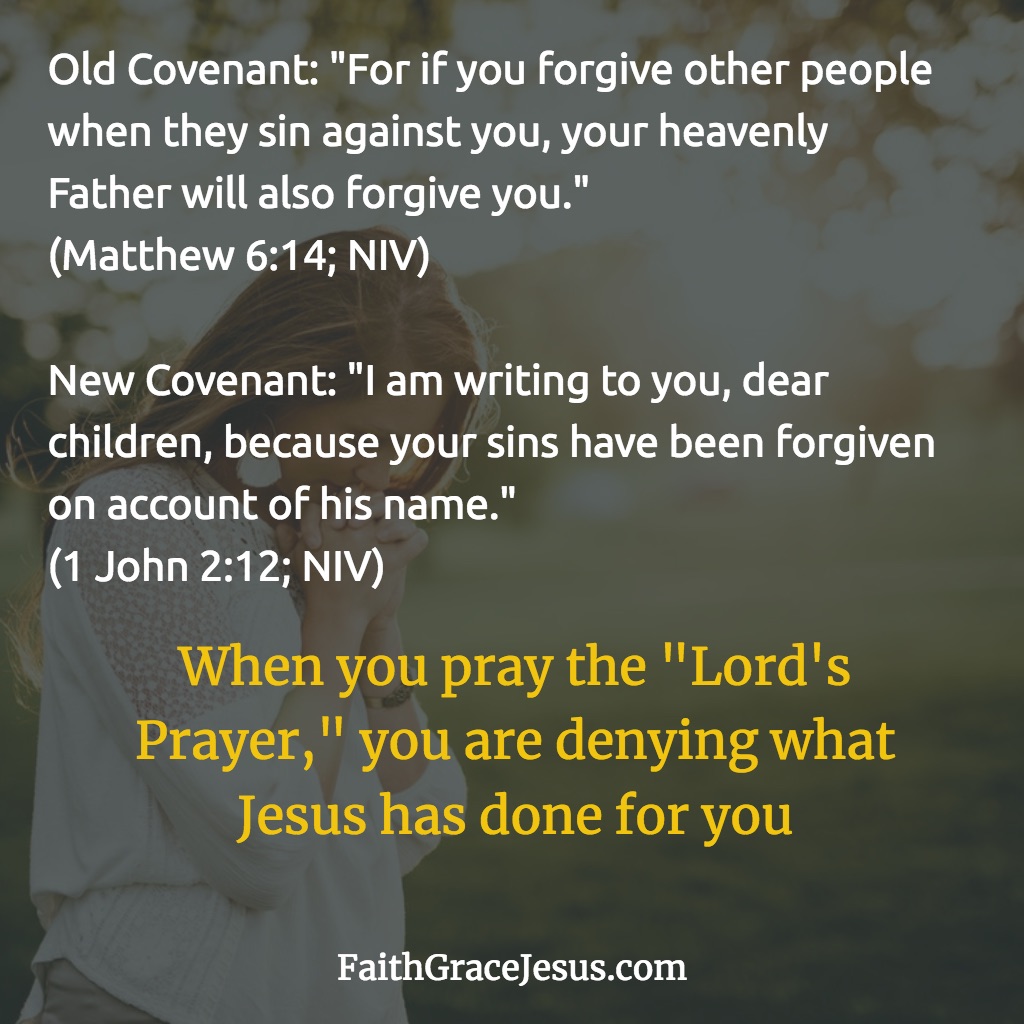
When reading the Bible, it is always important to note who is speaking, to whom, when, and in what context. Take the “Lord’s Prayer” as an example. When did Jesus give the “Lord’s Prayer”? It was before His crucifixion; that is, before He, with His sacrificial death, had reconciled us to God irrevocably and forever, regardless of what we do (“For it is by grace you have been saved, through faith—and this is not from yourselves, it is the gift of God— not by works, so that no one can boast.” – Ephesians 2:8-9; NIV)
Old Covenant: God’s forgiveness of our sins is conditional
The “Lord’s Prayer” was prayed in the Old Covenant. In the Old Covenant it was like this: do good, then God rewards you. God’s blessing was linked to what we accomplish. Therefore, in the “Lord’s Prayer” concerning the forgiveness of our sins, “For if you forgive other people when they sin against you, your heavenly Father will also forgive you.” (Matthew 6:14; NIV)
The condition in the Old Covenant that God forgives us is that, first of all, we must forgive all those who have done evil against us. Only then does God forgive us.
“Our Father in heaven,
hallowed be your name,
your kingdom come,
your will be done,
on earth as it is in heaven.
Give us today our daily bread.
And forgive us our debts, as we also have forgiven our debtors.
And lead us not into temptation, but deliver us from the evil one.”
(Matthew 6:9-13; NIV; color highlight added by me)
The “Lord’s Prayer” is the guidance on how to pray under the law, in the Old Covenant.
Everything changed with Jesus on the cross
In the Old Covenant, our reconciliation with God was about what we can accomplish; The New Covenant is about what Jesus, who is the grace (John 1:17), did for us. “ye are not under the law, but under grace.” (Romans 6:14; KJV)
The Good News. Are you rejoicing?
We no longer beg for our sins to be forgiven, but joyfully, we thank our glorious God that our sins have been forgiven us: “When you were dead in your sins and in the uncircumcision of your flesh, God made you alive with Christ. He forgave us all our sins” (Colossians 2:13; NIV; color highlight added by me)
Where sins are forgiven (and we are completely and forever forgiven through Jesus), nothing needs to be sacrificed, begged for, feared anymore – that is the Good News (Gospel). “And where these have been forgiven, sacrifice for sin is no longer necessary.” (Hebrews 10:18; NIV)
Every time you pray the “Lord’s Prayer,” the devil is happy. Why? Well, you are reversing what Jesus has already acquired for you on the cross because you are again praying for the conditions of the Old Covenant. I don’t want to know how Jesus, who was tortured and slaughtered as our sacrificial lamb, feels about that.
Do you believe this? “I am writing to you, dear children, because your sins have been forgiven on account of his name.” (1 John 2:12; NIV) “on account of his name” (ie Jesus); not because you forgave someone who sinned against you. Watch out that no one talks down or “prays” down the immense sacrifice of Jesus — what He did for you through His sacrificial death and resurrection from death (consequence of sin).



